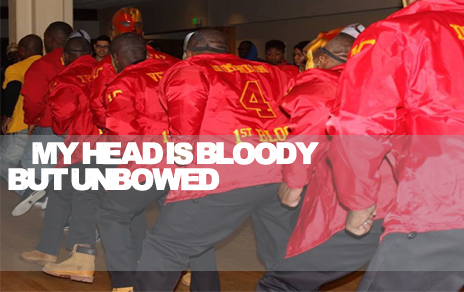Phire Brand

Sponsored by: Phi Delta Psi Fraternity, Incorporated
Name of Program: “PHIRE BRAND”
Website: PhireBrand.org
National Website: Phi Delta Psi Fraternity
One of the main tenets upon which Phi Delta Psi is built, is to work towards the empowerment and enrichment of young black men within our communities. This is one of the primary motivating forces underlying most of the community service initiatives that we as a Fraternity undertake each year.
There is ample evidence that show us quite clearly that young black men are facing a crisis within our communities throughout the nation. There are increasingly low numbers of young African Americans who choose to pursue a college career upon graduation from high school, and a persistently distressing rate of both high school and college dropouts among this demographic group.
One effective way of addressing this situation is to create a robust mentor program, whereby members of this Fraternity reach out and provide guidance to black male students in grades 10 through 12 within our communities. Thus fulfilling our obligation to uplift and help our community as well as creating a pool of prospective leaders and brothers for our Fraternity on a national scale.
MISSION:
The mission is to improve the lives of young people from underserved communities throughout the country where we have existing chapters of Phi Delta Psi, through innovative approaches to youth mentoring and education.
STRUCTURE:
Our program will target young black men in 10th to 12th grades (high-school). In particular, each chapter will reach out to the guidance counselors at high schools in the vicinity of their university/college. Through discussions with these counselors we will identify our pool of mentees from low-income at –risk youth who will benefit the most from our intervention.
Our mentors will be drawn from the pool of brothers within each chapter, both students and graduate members. The primary purpose of our mentoring program will be to build character and leadership development within each of our mentees. In addition, we will be encouraging them to graduate from high school, to encourage them to enroll in college and graduate. To identify potential career paths and the skills they will need to succeed.
Even the busiest, most successful professionals and students have time to be quality mentors. I know that when people hear the word mentoring, they immediately conjure up the idea that a lot of them time is going to be co-opted to provide guidance and being on call for their mentee. That is not what being requested, although brothers who would like to make that level of commitment are more than welcome to do so.
As such, we will provide different approaches to the mentorship program that will allow everyone to participate and become involved. Our program will be a combination of group/team mentoring and e-mentoring.
- Group Mentoring:- Here we will have each Fraternity brother form a relationship with at least one mentee and up to four mentees. This brother will assume the role of leader and make a commitment to meet with his group regularly, a minimum of twice per month over a two- year period. Alternatively, members within a particular chapter can designate at least four members to form a team that would then reach out to a group of mentees, with an adult-to-youth ratio of no greater than one to four. Like the group mentoring, regular meetings will be scheduled with your mentees and at least a two-year commitment must be made.
- E-Mentoring:- Another approach that each chapter can take would be E-mentoring, which will connect one Fraternity member with one youth. The pair communicates via the Internet at least once a week over a two-year period. These online meetings will be supplemented by at least four face-to-face meetings per year that can be organized at the chapter level, or individually by each brother.
In terms of the nature of the mentoring sessions, they will be structured to focus on our two major targets of character and leadership development and school to career development.
Character, social and leadership development: Here the focus will be on building a relationship between the mentee and a brother within Phi Delta Psi who will serve as a role model and life coach. In collaboration with your mentee, you will decide on the types of activities that you can do together with the focus being on building trust a strong relationship
School-to-career development. Here the focus will be to help our mentees explore a career direction, as well as maintain grades and working toward graduation from high school. The activities between the mentor and the mentee in this model may include the following: – Career exploration. Here the mentor can discuss possible career paths based on interests of their mentee. In cases where the mentor is a college graduate, there may be opportunities where the mentee can follow one or more adult employees on the job over the long term to learn more about a particular occupation. Job/life skills. Mentors help youth develop the skills they need to get a job and succeed in the workplace. Youth learn skills, such as how to prepare a resume, manage time and resolve workplace conflicts.
By requesting a minimum two-year commitment we are envisioning that mentors will work with their assigned mentees to assist them in the preparation for SAT/ACT college entrance exams as well as guide them in the process of choosing a college/university that fits their long terms objectives. We also expect that mentors will be responsible for assisting these young men in navigating the transition from high school to college. From the differences academically, to the cultural differences for college campuses, in terms of diversity they will encounter, their expected mode of behavior and various distractions they will have to overcome. Mentors will also encourage them to develop good study habits, as well as to participate in various extracurricular programs offered on their campuses.
Upon admission to college, mentors should continue their relationship with their assigned mentee, to keep track of his progress throughout school. Mentors would encourage their charge to develop good study habits, monitor his academic performance and steer him toward ongoing tutoring and study programs that his university/college may offer.
Once these participants have enrolled at their chosen college, they would of course be encouraged to become members of Phi Delta Psi. It should be kept in mind however, that this is not the uppermost objective for the program, but can be considered as a positive side benefit. They would be made aware of the many new doors and wide range of new opportunities that will be available to them by becoming part of Phi Delta Psi.









